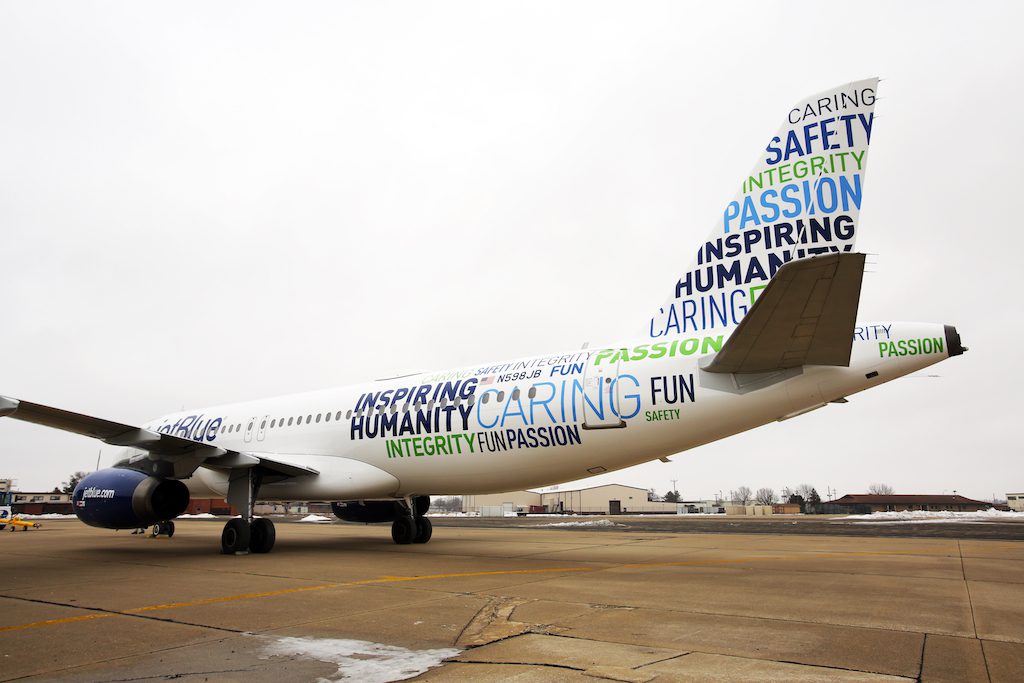Skift Take
JetBlue is planning for this crisis to last awhile. Not surprisingly, it is focused on hoarding its cash so it can survive.
Customers searching for flights on JetBlue Airways’ website may buy whatever they wish, but the options should come with a warning, saying “these flights will only operate if they can generate cash.”
Preserving cash was the theme of JetBlue’s second quarter earnings call on Tuesday. Executives repeatedly said they will do anything to hold on to it, including canceling flights close to departure if they will operate at a loss. Most other airlines have similar strategies, but on recent earnings calls, few of JetBlue’s competitors have shared so many details about their approaches. For JetBlue, cash is the No. 1 concern, even if that means annoying some customers.
“Our guiding criteria is cash generation,” JetBlue President and Chief Operating Officer Joanna Geraghty told investors. “We will continue to react to changes in demand trends, rationalizing and pulling capacity as needed before each schedule month is flown.”
Like all U.S. airlines, JetBlue is in crisis. It reported a pre-tax loss of $450 million for the second quarter, with a pre-tax margin of negative 209 percent. During the quarter, JetBlue flew 85 percent less capacity than it had expected, despite ramping up flying in May and June when demand improved slightly. It suspects some improvement going forward, but warned investors of a choppy recovery.
“We expect demand will continue to be volatile and recovery will not be perfectly linear as customers’ willingness to travel evolves as regions reopen for business and as infection rates change over time,” Geraghty said.
It will be a long time — years, likely — until JetBlue is profitable again. But by relentlessly focusing on cash preservation, the airline can ensure it withstands this crisis and emerges as a viable enterprise. The closer it can get to zero, the longer it can last, even if the United States continues to struggle to handle outbreaks.
In the second quarter, JetBlue said it had an average daily cash burn of $9.5 million, but it told investors the burn rate improved by late June, when it was about $8 million per day. This quarter, the airline said, it expects to burn between $7 and $9 million per day.
JetBlue should be able to go awhile at that burn rate. As of June 30, the airline had about $3.4 billion in total liquidity. It also carries debt of almost $4.8 billion.
Flight-By-Flight Evaluation
In normal times, an airline would prefer most of its flights generate a true profit, measured against all the costs of running an airline, including employee, real estate and airplane costs. But in Covid times, many carriers are using a different thought process.
The new calculation essentially comes down to this: Is it better to fly the aircraft, and generate a bit of cash, or keep the airplane on the ground to avoid cash losses?
Recently, many U.S. carriers have erred on the side of more flying, because fuel is cheap and the government is reimbursing airlines for most employee salaries under the terms of the CARES act. In this environment, Jetblue typically needs a load factor of 20 to 30 percent to breakeven, said Scott Laurence, the airline’s head of revenue and planning.
Ideally, JetBlue can estimate how a flight will book ahead of time. But if it not looking good, JetBlue will make changes as soon as a couple of days before departure, Laurence said. If JetBlue has multiple frequencies in a market, it can easily rebook customers on another flight.
“We plan the schedule,” Laurence said. “We then take a scrub of it a couple of weeks out, and then we take a scrub of it a couple of days out. That allows us to cancel and combine, if necessary … That allows us to drive a better cash result at the end of the day.”
This strategy requires nimble planning and buy-in from employees, but given the circumstances, it is necessary, Geraghty said.
“Our planning process has become much closer in,” Geraghty said. “This is enabling us to adjust quickly to that changing demand environment. It’s been somewhat disruptive, obviously, to crew members, but they’ve been unbelievably supportive given the current environment. We understand our cash-break even economics for flights. We will not operate flights that are not cash positive.”
The Daily Newsletter
Our daily coverage of the global travel industry. Written by editors and analysts from across Skift’s brands.
Have a confidential tip for Skift? Get in touch
Tags: covid-19, jetblue airways
Photo credit: JetBlue is focusing on cash preservation. Pictured is an Airbus jet. JetBlue Airways
